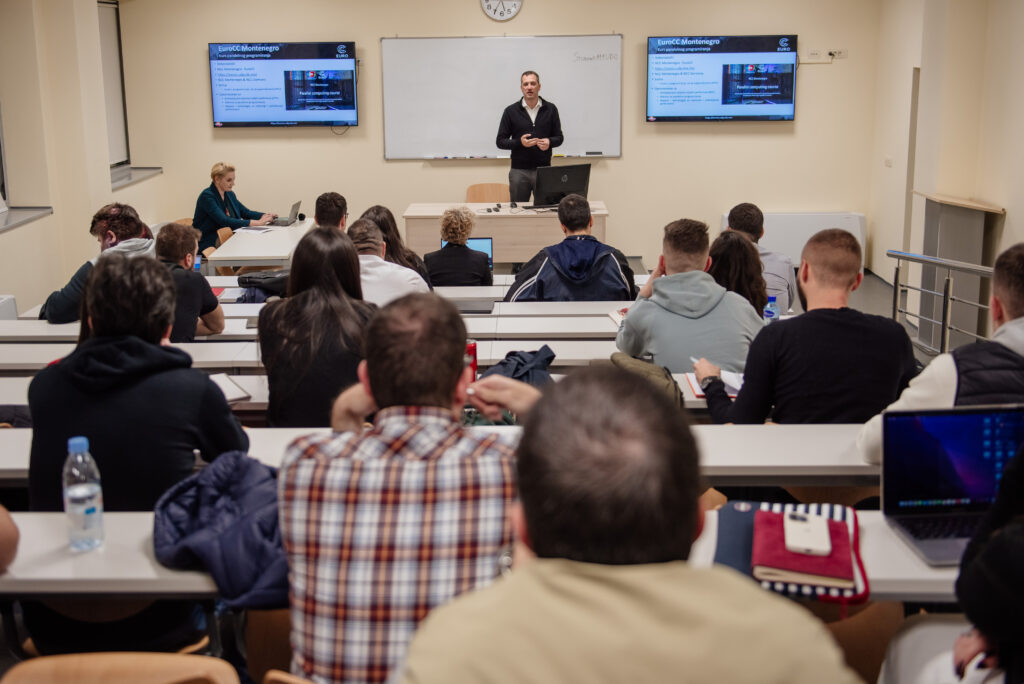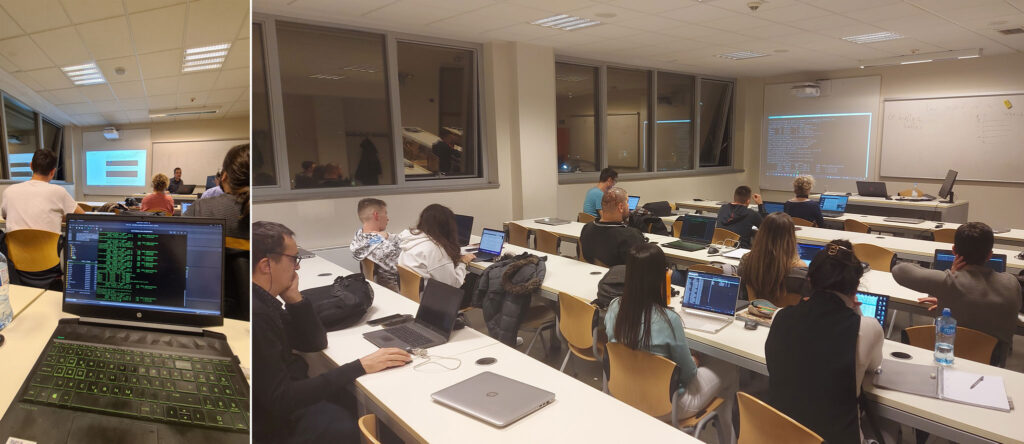Parallel Programming training course was organised by UDG and HPC NCC Montenegro in cooperation with NCC Germany, from 8th November to 14th of December 2022. The training was dedicated both to companies interested in the parallel programming skills and to students eager to learn on theoretical basis and practical features of parallel computing, with 54 attendees registered in total. Program course covered: Concepts of parallel computers – purpose, architecture, division; Practical guidelines for the development of parallel programs based on the architecture of shared and distributed memory as well as on the hybrid model; Analysis of the performance of parallel programs including decomposition of serial program and transformation into parallel programs. Beside the theoretical part, the training also included practical examples, use cases and hands-on exercises that allowed participants to apply and test their parallel programming knowledge on supercomputing systems/HPC-working environment. Participants learned to identify parallelization problem, analyse parallel programs complexity and efficiency, and develop simple parallel program, with dedicated support of academic professors and HPC experts dr Luka Filipovic from NCC Montenegro and lecturers from The Leibniz Computing Center, NCC Germany.

After the training, survey forms were sent out to regular participants, revealing interesting statistics on training activity, industry appeal and further expectations.
Regarding academic participants, this was an obligatory course for students of the MSc program Artificial Intelligence, but also 1/3 of students came from Engineering and IT faculty level programs. Regarding industry participants, the majority were coming from the ICT sector, with working experience up to 5 years (but also 38% with 15+ years).
Decision to attend Parallel Programming course was dominantly influenced by: 1) personal interest in developing parallel computing skills, 2) possibility to obtain practical experience and 3) engagement of international and experienced lecturers.
With regard to level of complexity, the majority of participants considered the program course demanding, but successfully managed. With regard to teaching program and course organisation, 65% and 71% of participants evaluated them with the highest grade, respectively. With regard to communication with lecturers, knowledgeable answers and useful consultations were highly appreciated. 86% of surveyed participants confirmed that the training course fully or mostly met their expectations.
Being asked what they liked the most about the course, participants stated: hands-on approach, practical examples, expertise of lecturers and open source application used by NCC in Germany. And when it comes to possible improvements, focus was on providing more practical examples and tasks. Over 70% participants would be further interested in Artificial Intelligence, Machine Learning and Deep Learning training opportunities, and all industry representatives confirmed interest in potential cooperation with UDG on project activities.

The general aim of the training course was to increase the parallel programming skills in Montenegro, but also to promote EuroCC projects and supercomputing resources, and to encourage HPC-based project ideas and partnerships.

